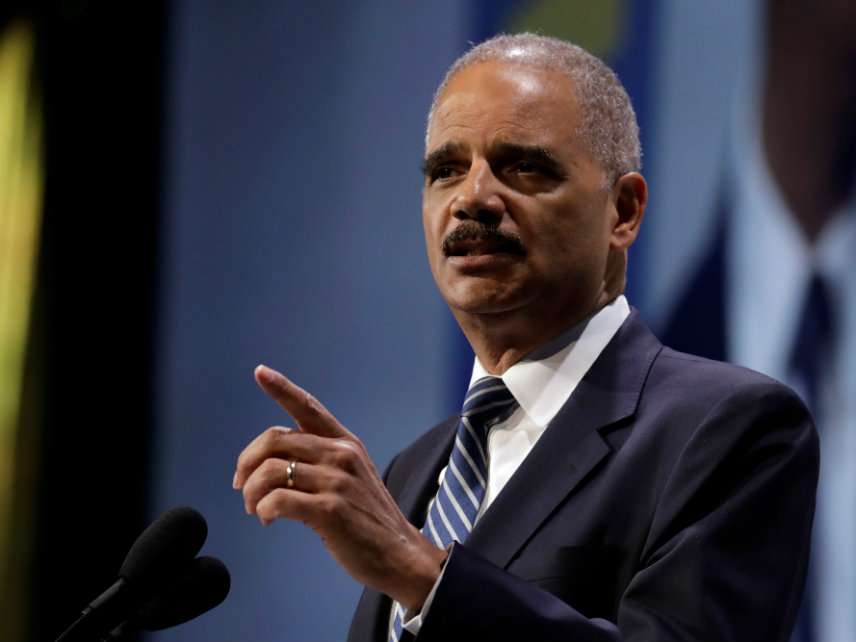Newly Released Eric Holder Memo: Feds Can Use FISA to Spy on Journalists
And the guidelines for spying on journalists may be even looser under Trump.

The federal government can use the Foreign Intelligence Surveillance Act (FISA) to spy on journalists. So said a pair of 2015 Justice Department memos, including one from then–Attorney General Eric Holder.
FISA is controversial in itself. The act is supposed to be used to justify surveillance on foreign targets. But as Reason's Scott Shackford has explained, intelligence agencies often use it to secretly spy on American citizens, sometimes without a warrant.
According to the newly released documents, obtaining permission to surveil members of the media is not easy, but it is possible. In one memo, dated March 19, Holder says FISA applications against journalists must be approved by the attorney general and deputy attorney general prior to being brought before a FISA court.
In the other memo, dated January 8, the deputy attorney general writes that "the Attorney General and the Deputy Attorney General shall retain discretion to refer such FISA applications to the Assistant Attorney General for the National Security Division for Disposition."
Both memos were obtained in a Freedom of Information Act (FOIA) lawsuit brought against multiple federal agencies by a pair of press freedom groups: the Freedom of the Press Foundation and the Knight First Amendment Institute at Columbia University. The lawsuit originally sought answers regarding the Trump administration's war on leaks.
Berkeley law professor Jim Dempsey, a former member of the Privacy and Civil Liberties Oversight Board (an independent agency within the executive branch), claims that the information contained in the memos is "a recognition that monitoring journalists poses special concerns and requires higher approval." Dempsey tells The Intercept he sees the rules "as a positive, and something that the media should welcome."
Patrick Eddington, a policy analyst in homeland security and civil liberties at the Cato Institute, disagrees. "If the government wants to conduct surveillance of any American for alleged criminal conduct, they should have to obtain a probable cause-based warrant from a federal judge, exactly as the Fourth Amendment requires," Eddington tells Reason. "These guidelines," he adds, "degrade that Fourth Amendment standard to the point of making it meaningless."
On top of that, we don't know whether the guidelines are being violated. Past audits of the Department of Justice "have routinely shown violations of the law," Eddington says, so "we have no reason to believe these guidelines have not been similarly ignored or abused."
While the memos date to the Obama era, the Trump administration seems willing to snoop on journalists as well. Earlier this year, the Justice Department demanded the phone and email records of New York Times reporter Ali Watkins in an attempt to find out whether her source, a former Senate aide, had leaked classified information.
Eddington suspects the guidelines for spying on journalists under President Donald Trump may be "looser" than they were under Obama, especially given Trump's "almost daily stated antipathy towards the press as a whole."
Regardless of who's in the White House, one constant remains: The federal government doesn't seem to have any problems with going after journalists.


Show Comments (82)